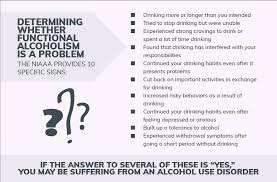Alcohol Rehabilitation: A Path to Recovery
Alcohol addiction is a serious issue that affects millions of individuals worldwide. Seeking help through alcohol rehabilitation programs can be a crucial step towards recovery and regaining control over one’s life.
Alcohol rehabilitation, also known as alcohol rehab, refers to the process of helping individuals overcome their addiction to alcohol and learn how to live a sober life. These programs are designed to provide support, guidance, and treatment to those struggling with alcohol dependence.
The Goals of Alcohol Rehabilitation
The primary goals of alcohol rehabilitation include:
- Detoxification: The initial stage of alcohol rehab involves safely removing alcohol from the body and managing withdrawal symptoms.
- Therapy: Counseling and therapy sessions help individuals address underlying issues that contribute to their alcohol addiction and develop coping strategies.
- Education: Learning about the effects of alcohol abuse on physical and mental health can empower individuals to make informed decisions about their recovery.
- Support: Peer support groups and individual counseling provide emotional support and encouragement throughout the recovery process.
- Medical supervision: Medical professionals monitor the detoxification process and manage any medical complications that may arise during withdrawal.
- Cognitive-behavioral therapy (CBT): CBT helps individuals identify negative thought patterns and behaviors related to alcohol use and develop healthier coping mechanisms.
- 12-step programs: Programs such as Alcoholics Anonymous (AA) offer a structured approach to recovery through peer support and accountability.
- Holistic therapies: Some rehab centers offer holistic therapies like yoga, meditation, art therapy, or equine therapy to promote overall well-being.
- What is the most crucial step in the treatment of alcoholism?
- What is the most popular program for recovering alcoholics?
- How long are alcohol rehab programs?
- What happens in rehab for alcoholics?
- Which is the most successful type of treatment for alcoholism?
- What are the 4 treatments for alcoholism?
- What are the three steps alcoholics must take to recover from their alcohol dependence?
- What does rehabilitation mean in alcohol?
Treatment Approaches in Alcohol Rehabilitation
Alcohol rehabilitation programs may incorporate various treatment approaches, including:
The Importance of Aftercare
After completing an alcohol rehabilitation program, ongoing support is essential for maintaining sobriety. Aftercare services may include continued therapy, support group meetings, sober living arrangements, or outpatient treatment programs.
If you or someone you know is struggling with alcohol addiction, seeking help through an alcohol rehabilitation program can be a life-changing decision. Remember that recovery is possible with the right support and commitment to change.
Top 8 Frequently Asked Questions About Alcohol Rehabilitation
What is the most crucial step in the treatment of alcoholism?
The most crucial step in the treatment of alcoholism is often considered to be the individual’s decision to seek help and commit to the recovery process. Acknowledging the presence of a problem and being willing to make changes are fundamental for successful treatment outcomes. This initial step paves the way for detoxification, therapy, support, and ongoing care that are essential components of alcohol rehabilitation programs. By taking this important first step, individuals can embark on a journey towards sobriety, improved health, and a more fulfilling life free from alcohol addiction.
What is the most popular program for recovering alcoholics?
One of the most popular programs for recovering alcoholics is Alcoholics Anonymous (AA). AA is a widely recognized fellowship that offers a supportive and structured approach to recovery through its 12-step program. This program emphasizes personal accountability, self-reflection, and peer support, providing individuals with a sense of community and understanding as they navigate their journey to sobriety. Many recovering alcoholics find strength and encouragement in the principles and practices of AA, making it a preferred choice for those seeking long-term recovery from alcohol addiction.
How long are alcohol rehab programs?
Alcohol rehab programs vary in duration depending on the individual’s needs and the specific program structure. Typically, alcohol rehabilitation programs can range from 30 days to several months. Short-term programs may last around 30 days and focus on detoxification and initial treatment. Longer-term programs, such as 60 or 90 days, provide more comprehensive therapy and support to address underlying issues and promote lasting recovery. Some individuals may benefit from extended or ongoing care through outpatient programs or aftercare services to maintain sobriety post-rehabilitation. It’s important for individuals seeking alcohol rehabilitation to consider their unique circumstances and consult with healthcare professionals to determine the most suitable program length for their recovery journey.
What happens in rehab for alcoholics?
In alcohol rehabilitation programs, commonly known as rehab for alcoholics, individuals undergo a structured treatment process to address their alcohol addiction and work towards recovery. The specific activities and therapies in rehab vary depending on the program and individual needs, but typically include detoxification, counseling, therapy sessions (such as cognitive-behavioral therapy), educational workshops on addiction and coping strategies, group support meetings, and holistic activities like yoga or meditation. The goal of rehab for alcoholics is to provide a supportive environment where individuals can safely detox from alcohol, gain insight into their addiction triggers, develop healthier coping mechanisms, and ultimately achieve sobriety and long-term recovery.
Which is the most successful type of treatment for alcoholism?
When it comes to the question of which is the most successful type of treatment for alcoholism, the answer can vary depending on individual needs and circumstances. However, research has shown that a combination of therapies and approaches tends to be the most effective in treating alcoholism. This may include a mix of detoxification, counseling, behavioral therapies such as cognitive-behavioral therapy (CBT), support groups like Alcoholics Anonymous (AA), and holistic treatments. The key to successful treatment lies in finding a personalized approach that addresses the physical, emotional, and psychological aspects of alcohol addiction to support long-term recovery and sobriety.
What are the 4 treatments for alcoholism?
There are four main treatments commonly used for alcoholism: detoxification, behavioral therapies, medication, and support groups. Detoxification is the process of removing alcohol from the body and managing withdrawal symptoms under medical supervision. Behavioral therapies, such as cognitive-behavioral therapy (CBT) and motivational interviewing, help individuals address underlying issues and develop coping strategies to avoid relapse. Medications like disulfiram, naltrexone, and acamprosate may be prescribed to reduce cravings or deter alcohol consumption. Support groups like Alcoholics Anonymous (AA) provide peer support and a structured approach to recovery through the 12-step program. These treatments can be combined or tailored to meet an individual’s specific needs in their journey towards sobriety.
What are the three steps alcoholics must take to recover from their alcohol dependence?
Recovering from alcohol dependence involves a multi-faceted approach that typically includes three key steps. Firstly, alcoholics must acknowledge and accept their addiction, recognizing the negative impact it has on their lives and those around them. This step often involves seeking support and professional help to begin the journey towards recovery. Secondly, individuals must undergo detoxification to safely rid their bodies of alcohol and manage withdrawal symptoms under medical supervision. Finally, ongoing therapy and support are crucial for addressing underlying issues, developing coping strategies, and maintaining sobriety in the long term. By following these three steps with dedication and commitment, alcoholics can work towards overcoming their dependence on alcohol and leading healthier, more fulfilling lives.
What does rehabilitation mean in alcohol?
In the context of alcohol addiction, rehabilitation refers to the process of helping individuals overcome their dependence on alcohol and learn how to live a sober and healthy life. Alcohol rehabilitation programs are designed to provide comprehensive support, including detoxification, therapy, education, and ongoing care, to address the physical, psychological, and social aspects of addiction. Through rehabilitation, individuals can develop coping strategies, address underlying issues contributing to their alcohol use, and build the skills needed to maintain sobriety in the long term.


